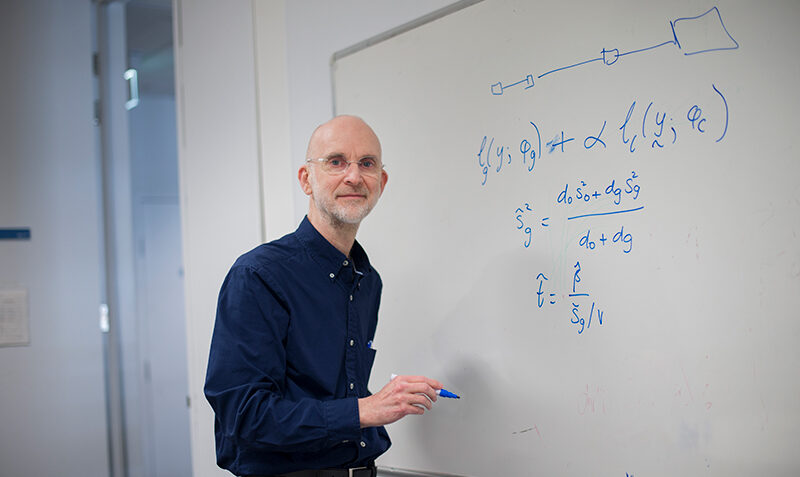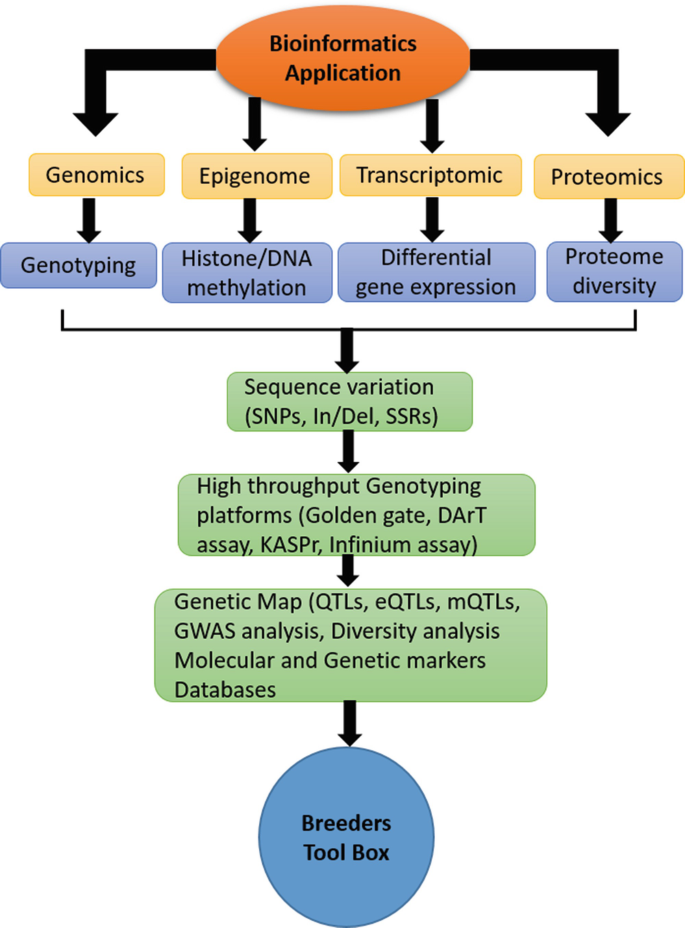The 6-Minute Rule for Bioinformatics Tutor
The 6-Minute Rule for Bioinformatics Tutor
Blog Article
Little Known Questions About Bioinformatics Tutor.
Table of ContentsThe Only Guide for Bioinformatics TutorNot known Factual Statements About Bioinformatics Tutor The Ultimate Guide To Bioinformatics TutorBioinformatics Tutor Can Be Fun For EveryoneThe Bioinformatics Tutor Diaries
Of the total amount participants associated with the training, 80% were pupils from public college institutions, while the remaining 20% came from exclusive organizations. To get approved for a certificate of involvement, trainees were required to go to at the very least 90% of the complete training hours. As an outcome of this need, an impressive 95% of the participants successfully obtained their certificates, having not just satisfied the minimum presence criteria however also completed all appointed tasks throughout the training.
Throughout the height of the COVID-19 pandemic, specifically in between June and August 2020, the task group was entrusted with organizing specialized training in bioinformatics. This training was particularly intended at pupils from the study group Core for Research in Applied Computer at the Federal College of Pará (UFRA) The adaptation to remote understanding platforms because of the pandemic developed an opportunity to check out new teaching techniques and electronic tools that enhanced both reach and performance.
To react to the growing demand in the computer and life scientific researches areas, an advanced course was presented in 2020 titled Introduction to Artificial intelligence. This course was made to give an available yet comprehensive summary of Expert system strategies, especially as applied in bioinformatics. The program was executed over three months, from October to December 2020, and was provided totally online via the Google Meet platform. This online format made it possible for participation from students across Brazil, a number of whom might not have had the opportunity to go to in-person sessions.
Bioinformatics Tutor Can Be Fun For Everyone
Approximately 50% of the overall training hours were devoted to practical tasks where pupils developed smart designs and applications in an array of clinical domains, including genes, molecular biology, and ecological data analysis. These platforms enabled trainees to engage in real-time data manipulation, version training, and formula testing.
The program attracted 80 participants in overall. Sixty of them were connected with different college establishments in the state of Pará, while the continuing to be twenty came from institutions found in five other Brazilian states. This broad geographical representation highlighted the nationwide passion in bioinformatics and the expanding need for specialized abilities in this location. By presenting Expert system in a functional and appropriate context, the effort offered to connect the void between concept and real-world application, providing pupils with a strong structure for future research study or employment in the area.
The training effort developed part of a wider scholastic outreach initiative referred to as the Bioinformatics when traveling job. This project has, over the years, presented dozens of trainees to the globe of bioinformatics and computational biology. The occasions held under this umbrella initiative have actually occurred throughout multiple regions and years, as summed up in Table 1 (Checklist of occasions, locations, years, and complete numbers of students and trainers)
One of one of the most amazing outcomes of the Bioinformatics when traveling effort has been its payment to the growth of decentralized research groups. Several of these groups, initially combined by their participation in training occasions, have given that gone on to generate independent scientific research in collaboration with local scholastic institutions. The training not only cultivated clinical reasoning within the context of bioinformatics yet additionally stimulated collaborative connections that expanded beyond the training environment. These collaborations have resulted in boosted neighborhood scientific productivity and contributed meaningfully to the advancement of the wider bioinformatics community in Brazil.
Some Of Bioinformatics Tutor
The exact same group, leaving out IH and RR, also go to this site acted as tutors for the practical training modules. Financing for the job was given through the give 88887.200562/ 2018-00 from CAPES.
The Federal University of Pará's Workplace of Research (PROPESP/UFPA) also gave financial backing, particularly for the manufacturing of the last manuscript. The authors state no monetary or business conflicts of rate of interest that could have influenced the study. Furthermore, all analyses and opinions expressed in this write-up are only those of the writers and do not necessarily reflect those of their corresponding institutions, the author, editors, or customers associated with the magazine process.

The Ultimate Guide To Bioinformatics Tutor
From an instructional point of view, the mentor method used in the training was intentionally interactive. Courses were performed in a manner that urged student engagement and discussion, exceeding memorizing memorization to discover just how ideas are established, applied in everyday life, and evaluated in scholastic settings. The educational approach focused on nurturing both strong and having a hard time students, supplying individualized support, and building self-confidence with sustained mentorship and perseverance.

Each group, containing approximately 36 participants, was sustained by 3 coaches-- many of whom were postdoctoral scientists with customized knowledge. These advisors not just assisted develop the group tasks however also facilitated their implementation, making sure that each research study concern was both relevant and properly tough. The goal was to offer a naturally practical context that individuals can check out with open-ended purposes and accessibility to curated datasets.
For added insights into the method and end results of this project-based understanding technique, readers are directed to S1 Text, which includes thorough descriptions of the instructional blog structure, assessment approaches, and job motifs utilized in the training sessions.
The Best Strategy To Use For Bioinformatics Tutor
Of the total participants included in the training, 80% were students from public higher education establishments, while the remaining 20% came from private organizations. To certify for a certification of engagement, students were called for to go to at the very least 90% of the overall training hours. Especially, past the students who enrolled in the training sessions, 7 experienced teachers got involved in delivering the training courses, while three committed research teachers collaborated the overall training process. Roughly 50% of the complete training hours were devoted to useful activities where students developed Source intelligent designs and applications in a variety of scientific domains, consisting of genetics, molecular biology, and environmental information evaluation. The training not just promoted clinical thinking within the context of bioinformatics yet additionally stimulated collaborative connections that extended beyond the training setting.
Report this page